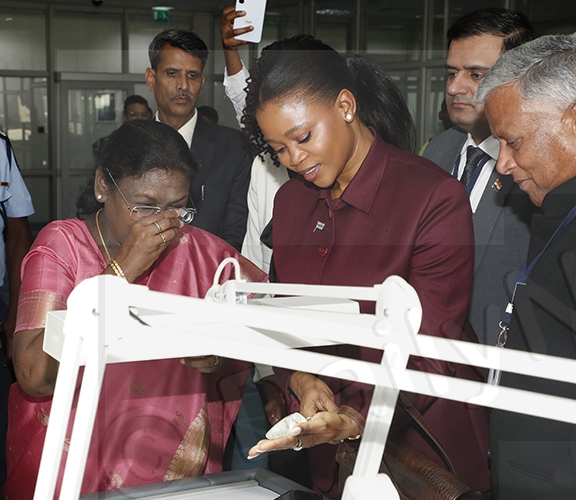Project feasibility study nears completion
17 Mar 2022
The metallurgical work for feasibility study of the envisaged Kgwakgwe Hill mining project in Kanye is expected to be complete this year.
The flagship project of Giyani Metals will, from the three Botswana manganese oxide deposits, produce a high purity manganese sulphate used in batteries for electric vehicles. Once fully operational, the 10-year project is anticipated to produce 120 000 tonnes of battery grade manganese.
“We are waiting for completion of metallurgical test work, a lot of what we will do now is more about process and chemistry rather than mining. We are in the final stages and we are hoping that those tests will be finished in the very near future, that will then allow us to complete the process flow sheet on the design of how we will go about the project,” explained Giyani Metals Corp vice president-business development, Mr George Donne in a virtual interview with BOPA.
He said completion of the feasibility study and subsequent mining license processing would pave way for setting up a demonstration plant in South Africa, where the company’s highly experienced experts and equipment are based.
However, he noted a full commercial plant, estimated to create between 100 and 200 job opportunities for both skilled and semi-skilled, would be built in Botswana.
“This is a highly sophisticated operation and a chemicals facility so at the moment we are using a group of highly specialised consultants predominantly based in South Africa. The expertise and equipment required is based in South Africa, and because this is such an unusual project, it will be built and tested in South Africa then it will be moved to Botswana,” he said.
Mr Donne further said the project would position Botswana well amidst the growing market for electric vehicles across the world. He said they were targeting European car manufacturers as the primary markets, with other market segments in the United States and Asia.
“Botswana will be one of the first new producers of this very specialised and very important material to be supplied to the major car companies in the West and also in Asia, ”he explained.
Mr Donne noted that apart from skills development for the local people, they were committed to producing high purity manganese with a low carbon footprint as part of their responsibility towards the global decarbonisation efforts.
He said their mining process had a low power demand than similar processes used elsewhere, hence low greenhouse emissions. He further said their processes did not require neither ore roasting nor electrifying during purification.
Mr Donne also noted that they were considering other options which would lower the carbon footprint including solar energy and bio-diesel.
Such strategies, he said, resonated with their highly sensitive market which strived for the lowest carbon footprint for their vehicles. Additionally, Mr Donne said consultation with local communities were progressing well in preparation for the impending project.
“We have regular interaction with the community about updates on the progress and expectations such as employment prospects,” he said. ends
Source : BOPA
Author : Kehumile Moekejo
Location : KANYE
Event : Interview
Date : 17 Mar 2022





